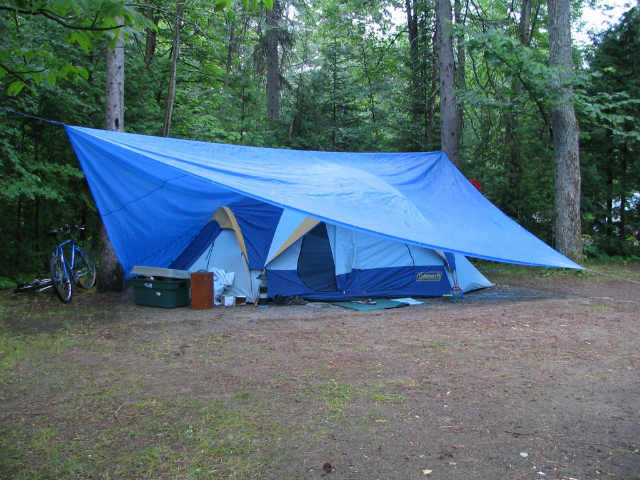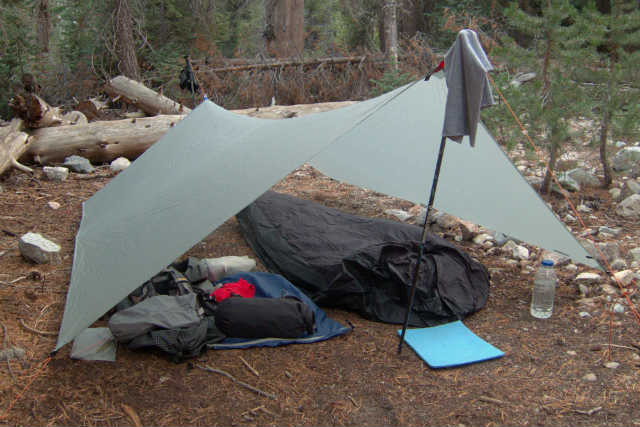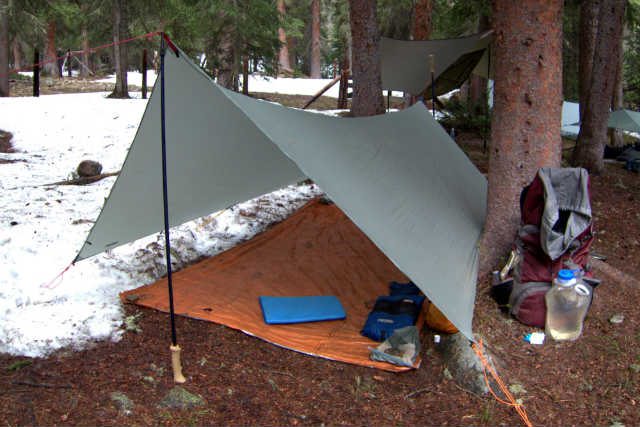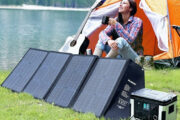Camping is certainly an exhilarating experience, perfect for when you want to have some peace and quiet away from the hustle and bustle of the world. It’s the ideal kind of adventure when you want to get away from the company of screens and become one with nature instead. However, when you’re an inexperienced camper, many things can turn your outdoor adventure into a burden that takes away all the fun. Lucky for you, we’ve got some tips that can help you make your experience better.

1. Protect Yourself from the Weather
There’s no doubt that Mother Nature can be moody. So, even if you’ve checked the weather forecast before setting out on this trip, rain can still surprise you and ruin your adventure. For that very reason, it’s best not to leave things to chance and prepare beforehand with quality rain flys instead.
These units don’t have flooring and serve as a waterproof outer layer for a tent. You may not consider them to be a necessity but becoming familiar with all the ways they can protect your tent might change your mind.
Depending on how much protection you need, based on your camping location and the season, you can choose from a rain fly that covers up just the top of the tent or one that extends to the ground. Keep in mind that the latter makes a great difference when the weather gets really bad.
To ensure you buy a design that will improve your outdoor experience, look for a model that’s simple to attach and secure. Get one that prevents flapping, reduces the risk of condensation and is made from durable materials like poly-cotton. To prolong its lifespan, once the camping season is over, clean it well and store it in a dry place.

2. Repel Insects
Equipping yourself with repellents, i.e. traditional bug sprays and cremes, is one way of handling it. But, if you want to fight this problem without spraying yourself with chemicals, you can turn to the supplies in your kitchen.
For example, you can use vinegar to repel insects. You can use both white vinegar or apple cider vinegar and spray it inside and around the tent. You can also spray it on your skin, but if you aren’t a big fan of the smell, you can turn to mint and fresh and dried herbs instead.
Spraying mint mouthwash all around, using mint essential oil or burning herbs on the campfire are other ways to deter bugs. Yet, when you’re outside, it’s also good to make use of what nature offers you. Take sage, for example. Burn a little sage, stay near it and you’ll see how mosquitoes will stay away from you. Be careful with that fire though!
Coverage is another effective way to protect yourself and it is especially important when you’re camping in areas with insects that can transmit diseases. To repel ticks, remember to spray your permethrin based repellent on the inside of your clothes too. Additionally, the same as with rain flys, it’s wise to invest in insect netting.

3. Stay Comfortable
Another thing that can ruin your trip? Pain! You’d be surprised how often back and neck pain turn out to be the party breakers when camping. Luckily, in most cases, you can avoid these aches by paying attention to the equipment you buy as well as how you lift and carry it.
That cheap sleeping bag or mattress sure sounds like a great bargain, however, be smart here and invest in quality pieces that will help you rest properly. Quality designs will provide you with the comfort you need to fall asleep faster and wake up energised and pain-free.
On the plus side, investing in quality mattresses and sleeping bags is worthy if you plan on camping for years to come. More often than not, people pack and take with them way more things than they’d need on their camping trip. Then, they have to carry this load from their vehicle to the campsite, all at the expense of their back. For that very reason, your best bet is packing lightly and taking only the things you’re sure you will use. Apart from reducing your load, it’s essential to be mindful of how you lift and carry it. Bend slowly and don’t put all the pressure on your back and waist. Consider this aspect as well the next time you’re preparing for your camping trip!


